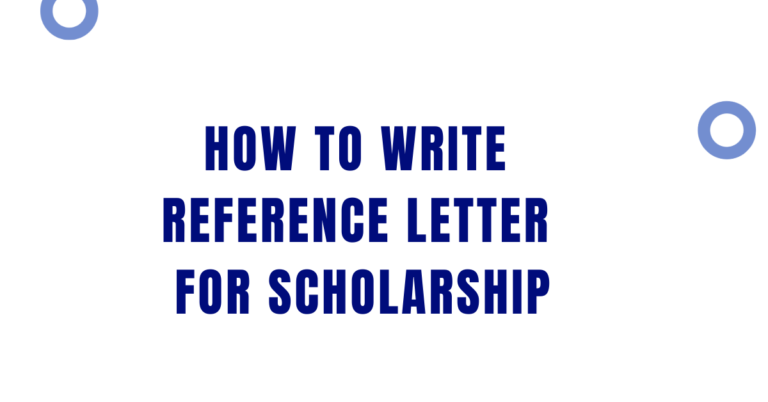~ Common Errors Applicants Make in the Chevening: In the 2022-2023 Chevening scholarship, many applicants made errors that prevented them from being awarded the scholarship, even though they met other requirements. Errors in your scholarship application are factors that can hinder your chances of being awarded.
It’s like applying for a job; if the job description specifies submitting two referees, and you only submit one, it signals to the employer that you’re not meticulous.
Therefore, you must ensure that you avoid these common errors that applicants make in the Chevening scholarship.
Due to the number of people applying every year from all accepted countries, Chevening keeps raising the standard for applications.
Starting from filling out the form online, essay writing in English language, to the interviews, and all other processes, you must be on deck and be ready to surpass each process without making mistakes.
What are these common errors that applicants make in the Chevening scholarship, and how do you avoid them? See below.
What are the common errors for Chevening?

Wrong Answers to Pre-screening Questions:
The pre-screen stage is a preliminary stage that occurs before the application. Here, all interested participants are required to take a brief test. Your performance in these test questions will determine if you proceed to the next stage of the application.
Application Form Error:
When you access the application form, entering the correct information and submit your application promptly is a huge plus.
Don’t be in a rush. Take the time to read and understand the instructions to provide accurate answers to the questions. Pay attention to word count, language, question clarity, eligibility criteria, and instructions to ensure your answers align with the requirements. Failure to do that, your application will be deemed ineligible.
Chevening stated, “Applicants must meet the minimum word count in the essay questions. Failure to meet the minimum word count will render your application ineligible.”
Providing False or Wrong Information:
One prevalent issue reported by Chevening screening officers is applicants providing false or misleading information. In an attempt to enhance the appeal of their application, some applicants engage in falsification, provide misleading documents, and exaggerate their work experiences.
Chevening has always emphasized the need for applicants to provide legitimate information with evidence. Failure to provide proof or evidence jeopardizes your chances of receiving the scholarship.
Having the Same Choice of Study Course:
Duplicate courses is a serious offence. Chevening Scholarship board allows applicants to choose three course options.
A common mistake is selecting the same course for all three choices, which contradicts the scholarship policy. When choosing your study courses, ensure to pick three distinct courses. While they can be related, they should not be identical.
Poor Essay Submission:
As mentioned earlier, essays are a crucial component of the Chevening Scholarship application, constituting over 75% of the process.
Applicants must ensure their essays are well-crafted with correct tenses, sentence structure, high mechanical accuracy, and appropriate punctuation.
The writing should be well-structured, clear, and easily comprehensible. It’s essential to proofread to eliminate typographical or grammatical errors. Failure to submit an error-free essay may render your application ineligible, jeopardizing your chances of receiving the scholarship. Make necessary changes if you feel adjustments are needed after the first draft.

Plagiarism:
Some may underestimate the significance of avoiding plagiarism, assuming that they can get away with it. However, it’s important to recognize that many write-ups often originate from various sources, such as websites, pages, emails, and more.
Surprisingly, a considerable number of applicants, approximately 5%, may fall into the trap of submitting plagiarized content. This often occurs as individuals seek shortcuts to ease the application process.
To counter this issue, applicants are strongly advised to utilize plagiarism software to review their essays before submission. This proactive step not only ensures the originality of the content but also safeguards your integrity.
Missing Deadlines:
While the excitement of pursuing a scholarship and presenting the best application is understandable, adherence to deadlines is equally crucial.
Timeliness has been a recurring challenge leading to the rejection of applicants’ submissions. As much as applicants strive to impress the board with a stellar essay, it is imperative to submit on time.
To navigate this challenge, applicants should prioritize gathering necessary information as their initial step. Once this is accomplished, they can proceed to write extensively well before the deadline approaches. Additionally, having the personal statement prepared and reaching out promptly to secure a well-crafted reference letter are essential actions to avoid missing crucial deadlines.
FAQS
Can I Edit My Chevening Application?
No, you cannot resubmit or edit applications. Chevening explicitly advises applicants who make mistakes to reapply in the following year. Therefore, exercise extreme caution when filling out your details to avoid any errors.
Can I Change My Course Choice in Chevening?
Yes, you can. According to the Chevening Scholarship application board, direct changes to course choices or universities after submitting the application form are not allowed. However, you have the possibility to discuss your intention to change courses with your interviewer, provided you present a valid reason for the decision alteration.
Final Thought
Remember that Chevening scholarship is only awarded to applicants can have worked a minimum of 2,800 hours. Some other mistakes applicants make is entering the wrong number of hours worked per week and the number of weeks worked.
To calculate this, Chevening stated that “..a working week comprises 35-60 hours and a working year comprises 40-50 weeks.”
Lastly, prepare thoroughly for the pre-screening test. Gather your documents, and conduct research in advance for the application form. A well-written essay is crucial; if writing is a challenge to you, consider seeking assistance from an expert. Focus on originality and avoid plagiarism. Plagiarism checkers are great whenever in doubt.






